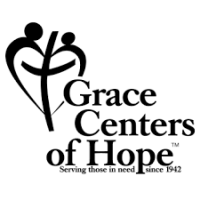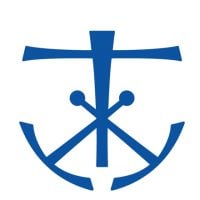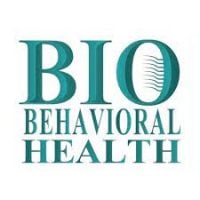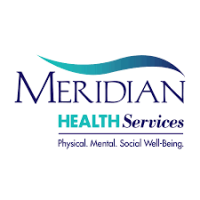
Grace Centers of Hope - Men Program
Drug Rehab Center in Pontiac, Michigan
- Substance Abuse
- Opioid Addiction
- Drug Addiction
- Alcoholism
Grace Centers of Hope Men Program provides faith-based residential and outpatient services to men who struggle with addiction and substance abuse. It offers evidence-based treatment, life skills, and work experience, and focuses on building a personal relationship with God to aid in the recovery process.
About This Michigan Facility
Grace Centers of Hope Men Program in Pontiac, Michigan is a nonprofit organization established to provide support and opportunities to those struggling with addiction and substance abuse. This facility is faith-based, offering a full continuum of residential and outpatient services to men, where they can receive treatment for mental health and substance abuse, gain important life skills and learn valuable work experience. It provides structured, disciplined and conservative approach, making it a safe and secure environment for men to receive the necessary treatment for their addiction.
At Grace Centers of Hope, accepting the help of the trained staff is critical in the recovery process. The comprehensive services include evidence-based treatment such as faith-based 12-step program, individual counseling, group therapy and educational classes. They are committed to providing a spiritual focus and developing a personal relationship with God, which greatly aids in building self-confidence, healing, and perseverance.
The Hope Centers of Grace Men Program is licensed and accredited by the US Department of Health and Human Services, and has been awarded the Joint Commission seal of approval for meeting the highest standards of safety and quality of care. In addition, the facility offers aftercare programs, job re-entry programs, and even an alumni program for graduates, to ensure that professional and emotional support is available in their recovery journey.
Genders
Ages
Modality
Additional
Conditions and Issues Treated
A drug abuser needs help because if no one helps them, they will not leave their vicious circle.
People who abuse drugs are likely to suffer from an addiction, which can cause serious health problems. It can also cause quarrels with people around them. It is common for drug abusers to have difficulty holding down jobs or relationships, but sometimes people around them can be quite tolerant. There are cases where the families of the drug abusers do not want to see them get any help, and the subject becomes controversial.
When it comes to helping drug abusers get sober, there are many options to choose from. It is essential to state that there is no “correct” way of doing things. People are different, and they need different types of help to get over their addiction.
Opioid addiction treatment should be done in a medically supervised drug rehab. Opioid addiction treatment will include detoxification and drug rehab counseling to help both the user and their loved ones learn how to live a successful sober lifestyle. Methadone, buprenorphine, and naltrexone are three medications that can help treat opioid addiction. Individual drug rehab counseling sessions can be helpful to discuss any questions or concerns with the drug treatment program.
Levels of Care Offered at Grace Centers of Hope - Men Program
This center offers a variety of custom treatment tailored to individual recovery. Currently available are Aftercare Support, Drug Rehab, Residential, Sober-Living / Half-Way, with additional therapies available as listed below.
Sober Living Homes are used in drug rehab to help former addicts maintain sobriety. The staff provides the residents with a safe and supportive living environment to learn how to live a sober life. The staff members also provide the residents with resources to equip themselves better to live a sober life. They also provide them with opportunities for exercise, many of which encourage learning coping mechanisms that will be helpful later on.
Residential treatment programs are those that offer housing and meals in addition to substance abuse treatment. Rehab facilities that offer residential treatment allow patients to focus solely on recovery, in an environment totally separate from their lives. Some rehab centers specialize in short-term residential treatment (a few days to a week or two), while others solely provide treatment on a long-term basis (several weeks to months). Some offer both, and tailor treatment to the patient’s individual requirements.
Aftercare is a part of drug rehabilitation. It is also known as “post-treatment support.” Aftercare programs are available for addicts after they complete drug rehab. It is often the final step in the recovery process. The goal of aftercare is to ensure that addicts maintain their achievements in rehab and do not relapse. Professionals generally provide aftercare (including addiction therapists, physicians, social workers, psychologists) and involve individual and group therapy sessions.
Therapies & Programs
Individual therapy is a critical component of addiction recovery. It allows the patients to go deep into their core issues and discover how to handle those problems better. Therapy can be conducted in individual sessions as well as group settings. In individual therapy for addiction, the patient meets with their therapist one-on-one to focus on the underlying issues. This allows patients to open up and discuss personal topics they may not feel comfortable discussing in a group setting. This type of therapy can help develop solutions specific to each patient, which helps speed up the recovery process.
Group therapy helps prevent addicts from feeling isolated or unique in their situation by offering a sense of comfort and fellowship. It also creates a forum for addicts to build their support systems and learn from each other. The group therapy sessions at Grace Centers of Hope - Men Program occur in a group setting rather than one-on-one to create a safer, controlled environment where addicts feel comfortable.
Drug addiction can be a difficult thing to overcome, but with the help of nutrition therapy, it can become a little bit easier. Nutrition therapy provides addicts with the nutrients they need to recover both physically and mentally. This type of therapy also helps addicts to have more energy and strength to fight cravings. Most importantly, good nutrition helps to keep addicts strong against the physical symptoms of withdrawal.
Nicotine replacement therapies are effective because they provide you with the nicotine you are addicted to without inhaling carcinogens from cigarettes. Some types of NRT include nicotine gum, nicotine patches (transdermal systems), nasal spray, and lozenges. The benefits of using NRT can include reducing the risk of heart disease and cancer.
Additional Details
Specifics, location, and helpful extra information.
Pontiac, Michigan 48342 Phone Number(248) 334-7939 Meta DetailsUpdated November 25, 2023
Staff Verified
Patient Reviews
There are no reviews yet. Be the first one to write one.
Pontiac, Michigan Addiction Information
Michigan has the second-highest rate of drug and alcohol abuse in the nation. Heroin is linked to more than 50% of the state's hepatitis C cases. Marijuana is the drug most often associated with crimes in Michigan, followed by methamphetamines. Opioids alone are responsible for almost 20% of all drug overdose deaths in Michigan.
Pontiac, Michigan is facing a drug addiction problem that is quickly worsening. In 2017, there were a total of 1,023 drug-related hospitalizations in the city. Over 60% of inmates in local jails are addicted to drugs or alcohol. There are a number of different forms of therapy accessible in Pontiac, MI. Inpatient treatment, outpatient treatment, and 12-step programs are some of the most popular kinds of treatment.
Treatment in Nearby Cities
- Owosso, MI (51.3 mi.)
- L'anse, MI (381.3 mi.)
- Tecumseh, MI (55.2 mi.)
- Farmington Hills, MI (10.5 mi.)
- Kincheloe, MI (257.5 mi.)
Centers near Grace Centers of Hope - Men Program



The facility name, logo and brand are the property and registered trademarks of Grace Centers of Hope - Men Program, and are being used for identification and informational purposes only. Use of these names, logos and brands shall not imply endorsement. RehabNow.org is not affiliated with or sponsored by Grace Centers of Hope - Men Program.



